How To Handle Panic Attacks When You Are All By Yourself Without Medication
Researchers describe a panic attack as a sudden episode of immense fear, which can cause the body physical reactions although there is no real danger or reasons to be afraid of.
It involves feelings of terror that may happen without warning. Panic attacks can happen at any time during the day, but they can even occur during sleep at night.
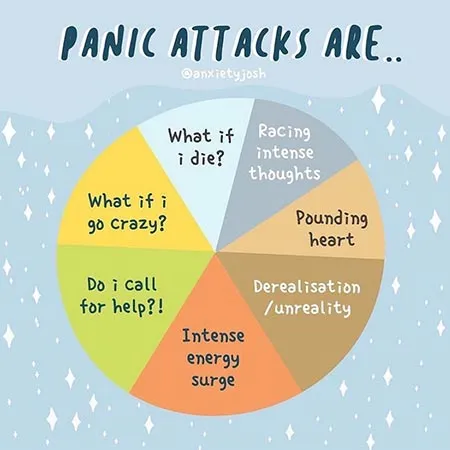
When people are going through a panic attack crisis, they believe they might have a heart attack, or they feel they are losing control over the situation or themselves.
It can be scary because they think they might be dying. The time a panic attack can last can vary from a few minutes to thirty minutes, however, the physical and emotional consequences of the attack may go up to a few hours.
Most people can experience one or two panic attacks during their lifetime, and the problems disappear, maybe because the situation ends.
But if panic attacks happen repeatedly over a while, and you are afraid about the next one - when will it happen again, and how you will deal with it, then, in such cases you might have developed a condition called panic disorder.
The number of attacks can vary upon how severe your health condition might be. Some people experience panic attacks once or twice a month, while others live such experiences several times a week.
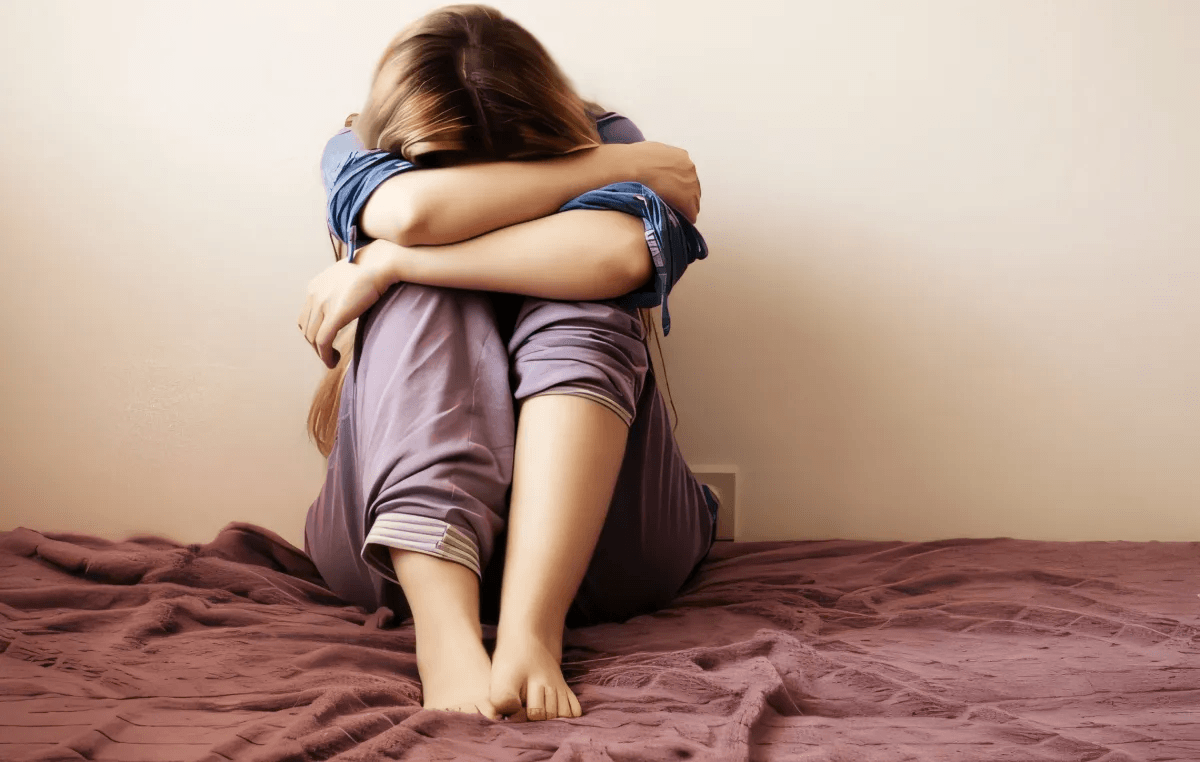
They are very common among the population. It has been estimated that 35% of my experience panic attack at a certain period during their lifetime. Panic attacks are usually defined as anxiety attacks.
The most common symptoms of a panic attack crisis are heart racing, feeling weak, faint, or dizzy, numbness in the hands and fingers, feelings of terror like death, sweat, chest pain, hard to breathe, and feelings of loss of control.
If it is left untreated then it can disable your life in many aspects, like trying to avoid a wide range of situations (for example, leaving the house) due to fear of experiencing a panic attack.
Panic attacks are not life-threatening, but they can cause immense fear and impact negatively your life quality, especially if it is left untreated. If it is left untreated, the chances are higher that it may develop into panic disorder. Women are more inclined to develop this condition than men, and it quite often begins in early adulthood, but therapies are very effective in treating panic attacks.
What causes panic attacks?
Scientists have not discovered why a certain group of people experience panic attacks, which can be developed into panic disorder. The brain is crucial for the way we deal with fear and anxiety. Genetics is the main cause why some persons can experience panic attacks.
Researchers believe that having a first-degree relative, parent, or sibling who suffers from panic attacks, can increase the chances for you to develop this condition in a certain period of your life.
While we can categorize other panic attack causes into three main categories, psychological, pharmacological (related to alcoholism, and illegal drug abuse), and environmental factors.
The psychological factors that trigger panic attacks may be:
- Chronic stress and overthinking.
- Certain mental health conditions such as depression, psychosis, obsessive-compulsive disorders (OCD) or traumas, post-traumatic stress (PTSD).
- Phobias, being exposed to objects and situations you fear.
- Lack of assertiveness, researches relate that people who suffer panic attacks are more passive in their relationships with other people.
- Low self-esteem.
Pharmacological factors that trigger panic attacks may be:
- Alcohol and drug abuse, or medication withdrawal.
- Prescription drugs' side effects.
- Large amounts of caffeine consumption.
Environmental factors that trigger panic attacks may be:
- Chronic physical illnesses, like cancer.
- Going through a great personal loss, like the death of a loved one, or the break up of a relationship.
- Experiencing life changes like getting married, becoming a parent, moving house, or losing your job.
- Other environmental factors are avoiding certain situations and environments that trigger panic, or anxious and negative self-talk, dysfunctional beliefs, and unexpressed emotions.
- Other factors worth mentioning are diet, financial stress, arguments, or conflicts, and, social anxiety. Food is a great factor in how your brain functions throughout the day. Eating healthy, proteins, complex carbohydrates, and plenty of water may help you keep the blood sugar levels and boost the production of serotonin, a certain neurotransmitter that relaxes the brain, which may avoid another panic attack.
- Financial stress is a great panic stressor, because being worried about debts, bills, and income can quite simply cause anxiety. This can be managed by asking for advice from a financial advisor. Feeling distracted and unorganized can generate more anxiety regarding finances. An advisor may be very handy to handle better your situation and develop a solid plan.
- Arguments or conflicts in a relationship with a loved one trigger panic attacks. These stressors can cause a great amount of stress because you will have to find the best solution for the situation. You may be quite often reliant on your loved ones to reach a common agreement and make amendments, which may give you the feeling of losing control over the situation. In such cases, a therapist and honesty would help solve the crisis.
Personal experience - what is it like to have a panic attack?

One day, without any warning or reason, a feeling of terrible anxiety came crashing down on me. I felt like I couldn't get enough air, no matter how hard I breathed.
My heart was pounding out of my chest, and I thought I might die. I was sweating and felt dizzy. I felt like I had no control over these feelings and like I was drowning and couldn't think straight.
After what seemed like an eternity, my breathing slowed and I eventually let go of the fear and my racing thoughts, but I was drained and exhausted.
These attacks started to occur every couple of weeks, and I thought I was losing my mind. My friend saw how I was struggling and told me to call my doctor for help.
Why do I have panic attacks alone?
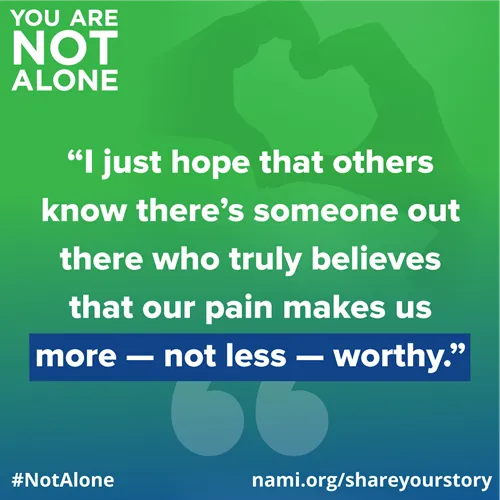
Panic attacks in most cases can happen when people are alone, without anyone to rely on. Having such a panic attack under these conditions is called autophobia.
It is a panic attack crisis triggered by the idea and experience of being alone. It is not an official diagnosis, because it is not included in the Diagnosis and Statistical Manual of Mental Disorders, fifth edition, Used by clinicians to diagnose mental disorders.
it is categorized under specific phobias, fears, or anxiety related to specific objects and situations. All phobias are distressing and can negatively affect people's lives if they are left untreated.
Just like all other anxiety disorders, autophobia has its physical and psychological symptoms, and by understanding them its treatments can assist people to deal better with their conditions.
Autophobia can simply be defined as anxiety about being isolated from other people, such people don't need to be physically alone to go through such symptoms. It can be called with other names like eremophobia, monophobia, and isolophobia. Autophobia is a specific phobia i.e., a special anxiety disorder that includes persistent, irrational, and excessive fear of an object or situation.
Approximately 12.5% of adults in the US, go through such experiences at a certain point in their life. To some, this experience can lead to severe anxiety. However, there is not an official definition of autophobia, it is complex, and hard to separate from an anxiety disorder, fears of being abandoned, disorder attachment, and post-traumatic stress disorders (PTSD).
Autophobia and loneliness are not the same, loneliness is related to negative emotions of having too many social interactions or meaningful relationships. People can experience loneliness even if they are around people, but autophobia is related to severe anxiety by thinking of passing the time alone. Anxiety is part of feeling lonely, although this sort of anxiety is less severe than autophobia.
The symptoms of autophobia will develop when people end up in a situation where they feel alone. Such symptoms are:
- Becoming obsessively stressed about remaining alone.
- Fears about what might happen if you are left alone.
- Feeling separated from your physical body when alone.
- Experiencing shaking, sweating, chest pain, dizziness, heart palpitations, hyperventilation, and nausea.
- Experiencing extreme terror when you are alone or will be alone.
- An intense desire to flee from situations when you are alone.
- Anxiety when you anticipate loneliness.
What causes autophobia?
What triggers fear of being alone in most cases is not obvious. However, traumatic past experiences, like childhood trauma, sexual abuse, or relationships issues can develop such conditions in many people.
Childhood experiences may cause autophobia, experiences of fear, abandonment, like a parent leaving, the death of a loved one, or distressing family relationship during their upbringing. For example, a child was abandoned in the street by his mother, and when he grew up, he still had the fear of being alone.
Traumatic experiences may cause autophobia, for example, when someone breaks into your house while you are alone or when a loved one deals with a health issue alone. If these problems remain untreated, they may be a very high concern for the rest of someone's life. They may lead to panic disorder, Post Traumatic Stress Disorder (PTSD), and develop suicidal thoughts.
Biological or genetics. The neurotransmitters in the brain may respond in very unimagined ways to certain triggers, which will make you feel endangered by a certain person, thing, or situation. While genetics plays a very crucial role, due to the genes transmitted from parent to child, and the child experiencing the fear of a family member when he is alone, then the kid will develop such fear in adulthood.
How do I overcome panic attacks alone?
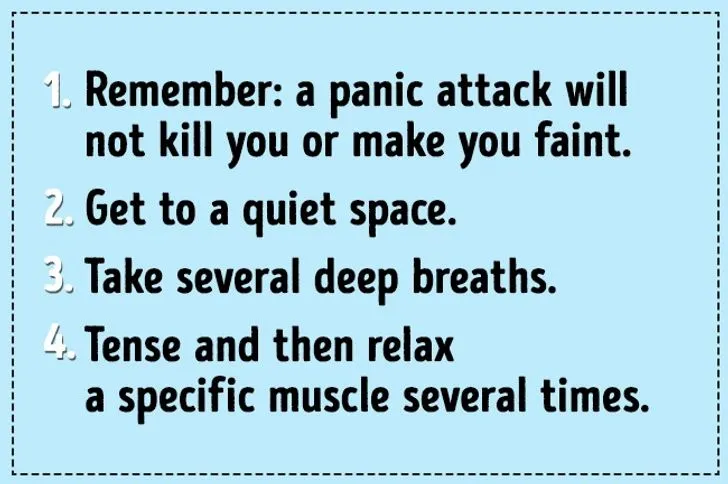
If you experience panic attacks for the first time in your life, or if you have developed panic disorders, you still might not know what to doe to calm yourself down. It is really scary because it can happen anytime, anywhere, and you may not know what to do to get over it completely without breaking down. What really matters is how they affect you what to do to survive, especially if you are alone with no one to help you calm down.
Even little things can lead to panic attacks, it may trigger the residual, background stress that needs to deal with, and bring it all to the surface again.
Surely, big events may lead to panic attacks, although there is no stress to aggravate it.
Here are the techniques to help you deal with panic attacks, especially when you are alone:
1. Don't stop living your life due to panic attack fear.
There are people, that the chances of having a panic attack stop them from enjoying their life with every good it has to offer. if you prevent yourself from living your life due to panic attacks fear, then you are generating more stress in your life, which will trigger the next attack, thus you allow your panic attack to control you, when in fact you should have control of your life.
2. Understanding the reality of the situation.
In most cases, a panic attack happens when there is no reason to be afraid of any danger, but still, you feel the gripping fear of panic. Unless you stop yourself and take a second to breathe, and assess the situation you are in, looking at reality, instead of allowing fear to control you, you will begin to understand there is no danger around to be afraid of. In addition, you will not have to relive another panic situation. For example, having to deal with an exam in the class, reflecting there is no danger to you and safety will assist you to overcome the panic. Panic attacks are usually associated with the places where those attacks have occurred.
Like for example, having a panic attack in the library and you run away to your car to calm down, then your mind will associate the library with that fear. If you return and re-experience the panic attack, staying in the situation until you calm down, you won't reply to such a situation with fear that triggers panic.
3. Use breathtaking techniques.
Hyperventilating is a panic attack symptom that generates fear, but deep breathing can relieve the symptoms you experience when you have a panic attack episode.
By being able to control your breath and learn breathtaking techniques, you will have fewer chances to feel hyperventilating that can worsen panic attacks with its symptoms.
Take a deep breath, in and out through your mouth, start to feel the filling of your chest and belly with air, and slowly leave them again. Breath in for a count of four, and then breath out for the same amount as well.
4. Visualize a safe calm place.
During a panic attack crisis, you feel like everything around you is a threat to you, including the environment. Fear is meant to protect us by warning us of a coming danger, however, people who suffer from panic attacks have allowed fear to take control of them and their situations. Frequently, people don't know why and what they are afraid of. To find out a way to cope with panic attacks, visualize a safe tranquil place where you feel safer and at peace. Close your eyes and recall in mind places that have given you such feelings.
It can be an ideal environment, even if you haven't been there, listen to the sounds, smell the aromas and experience the sun on your face and the sand beneath your feet.
You can do this every time you have to cope with an attack, furthermore, you can visualize not only just a place but even a person, a comforting figure like a parent, close friend, relative, or guardian angel with you.
5. Learn to use positive coping statements.
According to Dr. Donna Grant, Consultant Psychiatrist at Priority Hospital Chelmsford, when you are going through a panic attack and experience anxiety, it is handy to have some 'coping statements' to remind yourself panic is not dangerous and isn't harmful. For example, such statements could be: "Panic is just high levels of anxiety. By keeping in mind that these symptoms are nothing else but anxiety, I can prevent them from happening again in the future. It will not last forever, It will go away naturally in due time. I can handle the situation without having to escape or avoid it. It has never happened to me to faint, choke, or have a heart attack."
Remind yourself of these statements, which above all, are facts to always keep in mind to prevent other cycles of panic from happening again.
6. Apply the 5-4-3-2-1 method.
Because of the intensity of anxiety people experience during a panic attack they can feel detached from reality. An intense panic attack can overtake their senses.
The 5-4-3-2-1 method is meant to bring you down on earth and meditate. It will shift your focus away from stressors, to do this the person has to follow the following steps:
- Look at 5 separated objects. Think of each for a time.
- Listen to 4 distinct sounds. Understand where they came from, and what differentiates them from one another.
- Touch 3 objects. Think of their texture, temperature, and what they are used for.
- Identify 2 different smells. It can be coffee, soap, perfume, or laundry detergent on your clothes.
- Name 1 thing you can taste. Understand whatever taste is in your mouth, or try something else, like candy or chewing gum.
7. Distract yourself by forcing your brain to do something else.
A panic attack will make the brain feel consumed, instead of allowing it to do this, try a mental exercise, counting backward from 100, or recite the alphabet backward. Identify the shape and size of objects within your vision.
Whatever you do, engage your brain with mental tasks to focus on something else rather than panic and anxiety. There is no rush, engage your brain on a repetitive task to naturally calm it, and that the emergency is imaginary, fake. When you feel panic, force your brain to do something, whatever it is.
8. Challenge unhelpful thoughts.
The way you percept things directly affects panic. Many negative and useless thoughts are out of control, so it's best to acknowledge that they are just thoughts and not facts. Although during a panic attack crisis, we may believe them to be true, such thoughts must be challenged because they are based on assumptions.
For example, misinterpreting the physical changes during the panic as "I'm having a heart attack." To rightly challenge and answer negative thinking, ask yourself: "What can you say to yourself that is going to help?"
9. Take extra care of yourself.
People who don't look after themselves, quite often have it hard to learn to deal with panic attacks. Sleep is crucial for our well-being. What sort of self-care activities do you engage yourself in? Do you prioritize other people above yourself?
Looking after oneself is not egoistic, it is necessary to learn about ways to stop panic attacks and take care of your loved ones. But put yourself first, and make sure of your psychological and physical needs first.
You will not be able to support other people that you care about by losing touch with yourself and feeling the strain of not fulfilling your needs first, such action may lead to a distressing panic attack.
There is not just one simple technique to solve panic attacks, you can apply many of them. Meditation and exercise can help, even just a walk in a park prove to be helpful, try muscle relaxation, share your problems with your loved ones, and finally consult a mental health expert.
Going under therapy (Cognitive Behavioral Therapy, CBT) and taking the proper medications, will combat panic attacks better and faster than you think until you will finally get rid of those.
How can I beat panic attacks without medications?
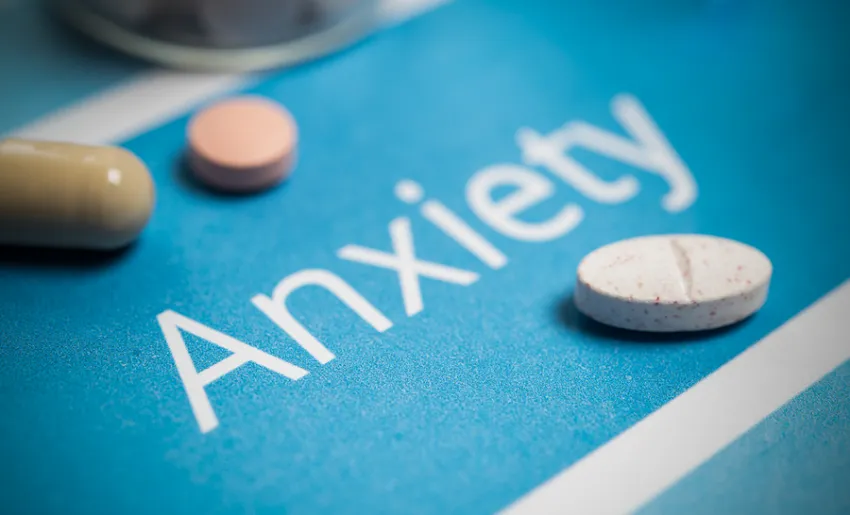
Nowadays on American televisions, there are plenty of medications that perform miracles.
However, these pharmaceuticals are just a big industry wanting us to think FIRST to treat anxiety with medications. There are ground reasons not to turn to medications as the first solution for panic.
The main reason is that there is a psychotherapeutic intervention with more long-lasting effects and fewer side effects.
Benzos: The first group of anxiety medications that are used through the years by family doctors is benzodiazepines, like Xanax, valium, Ativan, libre, Klonopin, Halcion.
These medications react fast, but only on the short run. The main problems is that they are addictive, making people grow dependent physically on them. Furthermore, emotionally people feel they need them or otherwise they will panic. for htis reasons many mental health websites don't use them any longer.
SSRIs: A better solution is using antidepressants, known as Selective Serotonin Reuptake Inhibitors, (SSRI). The most common ones are Prozac, Zoloft, Paxil, Lexapro, Celexa.
These drugs are not addictive, like the benzodiazepines, but they have long-term effects for reducing anxiety. However, it takes 2-6 weeks for them to have an effect, without mentioning the side effects. they can be used for years, and give the user an impression that their anxiety will not stop unless they have this drugs. quite often anxiety symptoms recure when people stop taking these meds.
Alternatives to beat panic attack without starting a medication
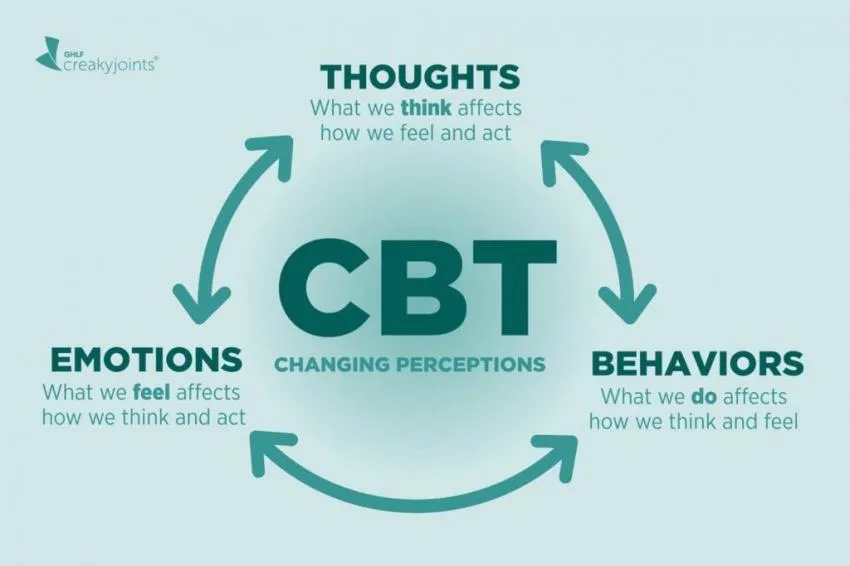
Remember that trying to find solutions for panic attack problems, these solutions are triggered when we happen to be under situations that provoke anxiety. This process escalates and people try to avoid it by "mastery of avoidance" strategies. People who suffer from panic attacks understand this very well.
All treatments aim at looking toward anxiety, rather than fleeing from it. "Mastery exposure" is the key, these interventions are meant to do the opposite of our solutions, and learn the skills for mastery.
The most known approach to deal with anxiety is Cognitive Behavioral Therapy or CBT. It evolves through six steps:
1. Education-Reframing the problem.
This treatment starts by educating the patient about the nature of the panic disorder, its causes of panic, anxiety, and how they are preserved by feedback loops physical, cognitive, and behavioral response systems.
This involves educating the clients regarding the adaptive nature of fight-flight responses, removing myths about losing control, or losing one's mental health, and the thought that anxiety is taking the necessary precautions for future threats and panic responses. This treatment will help you recognize when there is a real threat and a "false alarm."
2. Self-monitoring.
This is the second step, paradoxical to most people who panic, but not for the ones who are educated about the first step. It boils down to see your clients go through panic attacks and observe them learn. (this is in contradiction with their avoidance strategies).
Therapists ask their clients to take a record of a panic attack by describing the cues, levels of distress, symptoms, thoughts, and behaviors related to the attack. In addition, they have to complete a daily mood record at the end of each day to evaluate the average levels of anxiety.
3. Breathe training and applied relaxation.
A therapist has taught their clients about focusing on their deep diaphragmatic breathing to counteract hyperventilation. While to counteract muscle tension, therapists have used progressive muscle relaxation, however, the results of these interventions can only distract from the vicious cycle and provide a better sense of control.
4. Cognitive restructuring.
According to the cognitive approach, the core intervention is cognitive restructuring, whose main goal is t to target the clients' assumptions, frames, and automatic thoughts regarding their situations, experiences, and body sensations. It begins with presenting the role of thought in generating emotions, and stating that these thoughts are assumptions, guesses, and hypotheses, not facts.
This can reshape the nature of panic as a consequence of a potentially unexamined "hypothesis" rather than "reality itself." The main reason for this technique is to counteract the client's exaggeration related to the danger of negative events, or catastrophizing ones.
5. Exposure to dangerous sensations and events.
This is the final paradox for clients. If a young lady has dealt with her anxiety and panic attacks by "mastery of avoidance," when dealing with anxiety by exposing herself to dangerous sensations and events, then this is completely counterintuitive!
Nevertheless, such exposure can be the beginning of solving panic disorders. It is the final reversal vicious cycle related to panic and avoided anxiety. When the clients comply with such exposure, during the session and homework as well, in this case, that is the key to effectiveness.
6. Acceptance and exposure to mindfulness exercises.
"Experimental avoidance," is the late approach to learning acceptance of cognitive diffusion, prominent in acceptance and commitment therapy.
At its core, therapeutic frames, rationales, and metaphors are applied to teach the client that avoiding anxiety-producing sensations will stop him from reaching valued things in their lives.
Practicing mindfulness exercises, where the clients have to imagine the fear and anxiety-inducing events without creating an option for them or reacting to them is the basic element of this approach.
Final thoughts
Anxiety can take a toll on your life. It can exhaust your physical and psychological energies.
Not only that, but it may trigger conflict in relationships, make school and work hard to deal with, and cause chronic stress, feelings of fear, and isolation.
But on the other hand, anxiety is curable without medications if you apply the proper combination of lifestyle changes, therapies, and support.
Although anxiety has proven to be a wild beast, it still can be tamed and managed without medications.
It may happen that sometimes to overcome worry, and nervousness, all you have to do is change your behavior, thoughts, and way of living.
You may begin with a drug-free approach, and then you may consult a doctor if this doesn't work or if the situation gets worse.
This drug-free anti-anxiety technique may be the perfect addition to your medication regimen. Do what works for you and what is best for you.
Be positive and know that anxiety cannot control your life, you can.
References:
- Banyan Mental Health Staff. Top 10 Panic Attack Triggers. Banyan Mental Health. n.d. https://www.banyanmentalhealth.com/2021/02/03/top-10-panic-attack-triggers/
- Better Health Staff. Panic attack. Better Health Channel. n.d. https://www.betterhealth.vic.gov.au/health/conditionsandtreatments/panic-attack#what-is-a-panic-attack
- Cirino, Erica. Medically reviewed by Timothy J. Legg. Ph.D. Autophobia. health line. Last medically reviewed on September 18, 2018. https://www.healthline.com/health/autophobia#causes
- Cleveland Clinic Staff. Panic disorder. Cleveland Clinic. n.d. https://my.clevelandclinic.org/health/diseases/4451-panic-disorder
- Fraser, J. Scott Ph.D. Mastering Panic Without Medication. Psychology Today. February 5, 2020. https://www.psychologytoday.com/us/blog/breaking-the-cycle/202002/mastering-panic-without-medication
- Gotter, Ana. Medically Reviewed by Timothy J. Legg. Ph.D. 11 ways to Stop a Panic Attack. health line. Updated on July 23, 2021. https://www.healthline.com/health/how-to-stop-a-panic-attack#breathe-deep
- Higuera, Valencia. Medically reviewed by Timothy J. Legg. Ph.D. When in Doubt, Shout It Out! 8 Drug-Free Ways to Battle Anxiety. health line. August 25, 2020. https://www.healthline.com/health/effective-ways-to-fight-anxiety-without-drugs
- KY COUNSELING CENTER. Autophobia: The Fear of Being Alone. KENTUCKY COUNSELING CENTER. May 3, 2021. https://kentuckycounselingcenter.com/autophobia-fear-of-being-alone/
- Mayo Clinic Staff. Panic attacks and panic disorders. MAYOCLINIC. May 04, 2018. https://www.mayoclinic.org/diseases-conditions/panic-attacks/symptoms-causes/syc-20376021
- NIH National Institute of Mental Health Staff. Panic disorder. When Fear Overwhelms. NIH National Institute of Mental Health. Revised 2016. https://www.nimh.nih.gov/health/publications/panic-disorder-when-fear-overwhelms
- NIH National Institute of Mental Health Staff. Panic disorder. NIH National Institute of Mental Health. Last reviewed on July 28, 2020. https://www.nhs.uk/mental-health/conditions/panic-disorder/
- O'Mara, Lori. How to survive a panic attack alone. COPE BETTER THERAPY. n.d. https://copebetter.com/how-to-survive-a-panic-attack-alone/
- PRIORY STAFF. 5 top tips for people coping with panic attacks. PRIORY. n.d. Medically reviewed by Dr. Donna Grant. https://www.priorygroup.com/blog/5-top-tips-for-coping-with-panic-attacks
- PRIORY STAFF. What causes panic attacks. PRIORY GROUP. n.d. Medically reviewed by Dr. Olugwagbenga Odeyemi. August 2021. https://www.priorygroup.com/mental-health/panic-attack-treatment/causes-of-panic-attacks
- Smith, Amy. Medically reviewed by Alex Klein. PsyD. How can you stop a panic attack? MEDICALNEWSTODAY. September 29, 2020. https://www.medicalnewstoday.com/articles/321510#methods
- Smith, Amy. What you need to know about autophobia. MEDICALNEWSTODAY. September 29, 2020. https://www.medicalnewstoday.com/articles/319816
- Stoppler, Melisa Conrad. MD. Panic Attack Symptoms. WebMD. September 13, 2021. https://www.webmd.com/anxiety-panic/guide/panic-attack-symptoms
- Tony Robbins. How to control panic attacks right now and in the long term. TONY ROBBINS. n.d. https://www.tonyrobbins.com/mental-health/how-to-stop-panic-attack/
- Villines, Zawn. Medically reviewed by Vara Sariballi. Treating Anxiety without medication. MEDICALNEWSTODAY. April 14, 2021. https://www.medicalnewstoday.com/articles/how-to-treat-anxiety-without-medication#stress-relief-techniques
- WebMD staff. What is Monophobia. WebMD. 2020. https://www.webmd.com/anxiety-panic/what-is-monophobia
Opinions and Perspectives
Appreciate the balanced approach between coping strategies and seeking professional help.
The advice about challenging thoughts during panic is solid. It takes practice though.
Good information about the duration of attacks. Mine usually last around 20 minutes.
This article validates my experiences. Sometimes just understanding what's happening helps.
Never knew about the connection between assertiveness and panic attacks. That's fascinating.
Avoiding situations definitely made my panic worse over time. Facing fears is hard but necessary.
The section about relationships and conflicts triggering attacks is so accurate.
These techniques sound good in theory but during an actual attack it's hard to remember them.
The emphasis on self-care is crucial. We often forget to prioritize ourselves.
I found the information about diet interesting. Never considered how blood sugar levels might affect panic attacks.
The article could have addressed panic attacks during sleep more thoroughly. Those are particularly scary.
This makes me feel less alone in my struggles. Time to try some of these coping strategies.
The section about environmental factors is enlightening. Never realized how much my surroundings affect my anxiety.
Not sure I agree with the stance on medication. Some of us need it to even begin implementing these techniques.
The explanation of autophobia helps me understand why my attacks are worse when I'm alone.
Wish they'd mentioned more about physical exercise as a management tool. It's been crucial for my recovery.
The bit about low self-esteem being a trigger really resonates with me. Working on that has helped reduce my attacks.
I'd never heard of muscle relaxation techniques before. Going to give that a try next time.
The part about CBT is spot on. It's been the most effective treatment for my panic attacks.
The self-monitoring suggestion seems useful. I'm going to start keeping track of my triggers.
I appreciate how the article explains the difference between occasional panic attacks and panic disorder.
My therapist taught me similar techniques and they've really helped. It takes practice but it's worth it.
The tips about challenging unhelpful thoughts are great, but it's so hard to do in the moment of panic.
The article could have mentioned more about the importance of sleep. My attacks are always worse when I'm sleep-deprived.
Understanding that panic attacks aren't life-threatening was a huge breakthrough for me. Knowledge really is power.
I've tried the breathing techniques but sometimes they make me more anxious. Anyone else experience this?
The explanations about the fight-flight response really helped me understand what's happening in my body during an attack.
This hits home. Had my first attack alone and it was terrifying. Now I know these techniques, I feel more prepared.
The positive coping statements seem helpful. I'm going to write some down to keep with me.
I've found that regular exercise helps prevent my attacks. Wish the article covered more preventative measures.
The financial stress trigger is so real. My attacks always get worse when I'm worried about money.
Living with panic attacks for 10 years now. While these techniques help, sometimes medication is necessary and that's okay too.
I find it interesting that women are more likely to develop panic disorder. I wonder if this is due to biological factors or societal pressures.
The statistics about 35% of people experiencing panic attacks really surprised me. We're definitely not alone in this.
I think it's important to note that what works for one person might not work for another. We need to be patient finding our own coping strategies.
The suggestion about not avoiding situations is tough but true. The more I avoided places where I had attacks, the smaller my world became.
Anyone else feel exhausted for days after having a panic attack? The article mentions hours but for me it's much longer.
The cognitive restructuring approach saved my life. Learning to challenge those catastrophic thoughts made such a difference.
I'm not convinced about the caffeine connection. I drink coffee daily and it doesn't trigger my attacks.
The part about autophobia resonates with me. I never knew there was a specific term for fear of being alone during panic attacks.
As someone who works in mental health, I appreciate how this article emphasizes understanding the reality of the situation during an attack.
The genetic component is interesting. Both my mother and I experience panic attacks, which explains a lot about our shared experiences.
Has anyone tried the visualization technique? I find it hard to focus on imagining a calm place when I'm in the middle of an attack.
The article doesn't mention how isolating panic attacks can be. I wish more people understood that it's not just being dramatic or seeking attention.
I disagree about avoiding medication completely. While these techniques are helpful, some people genuinely need medical intervention alongside therapy.
The 5-4-3-2-1 method really works! When I feel an attack coming on, focusing on my senses helps ground me back to reality.
I've struggled with panic attacks for years and it's so refreshing to see an article that addresses managing them without medication. The breathing techniques mentioned have been a game-changer for me.
